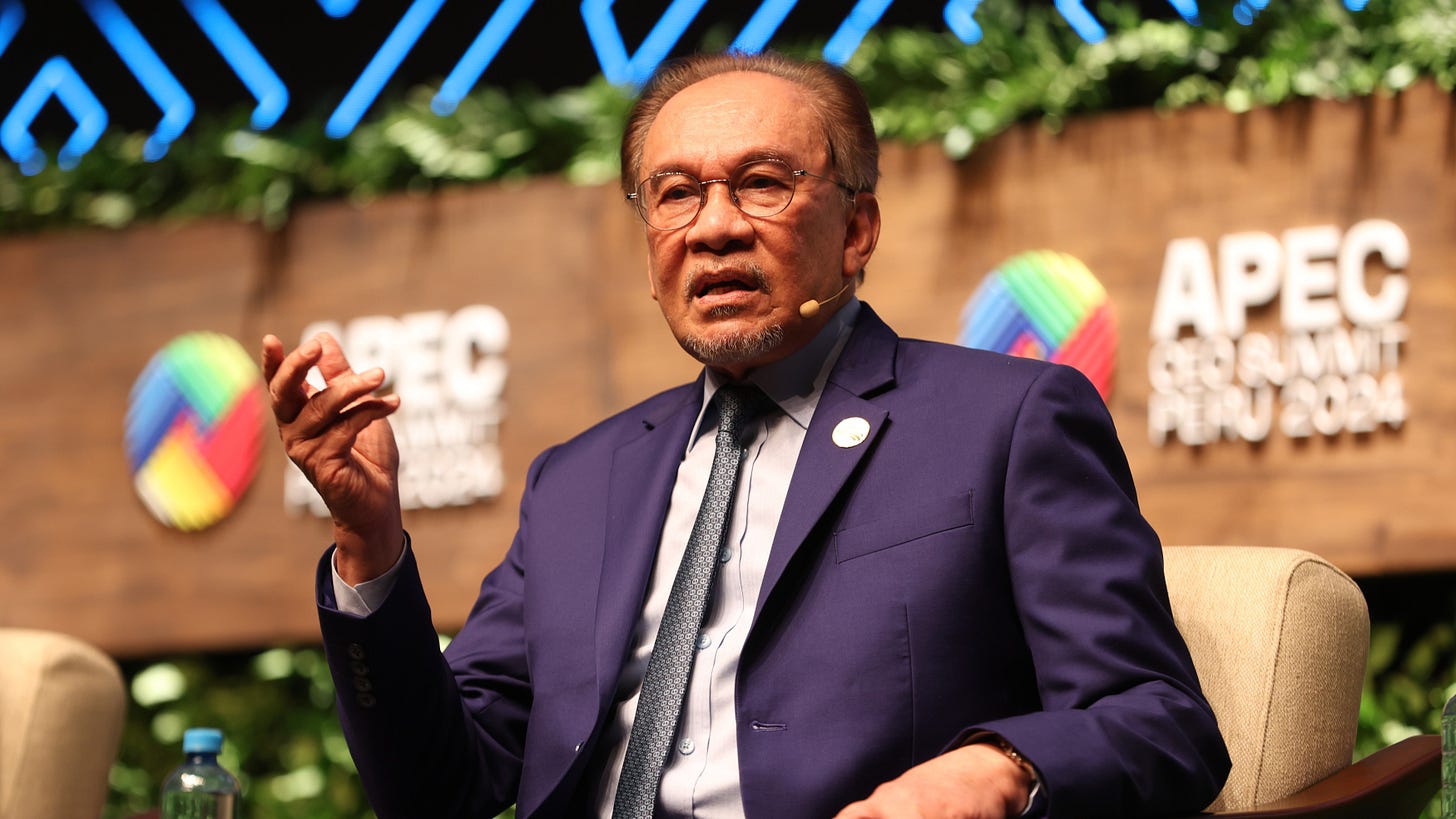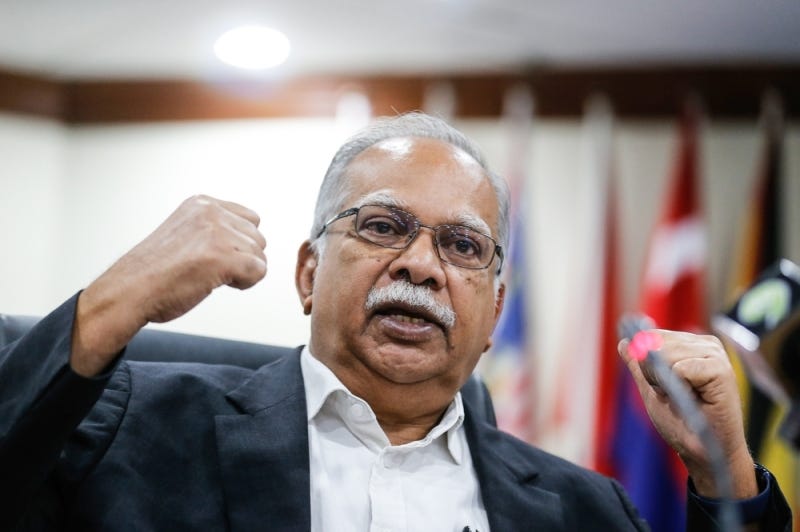Guest Editorial: Machiavellian Anwar
RCI on Batu Puteh: A politically motivated vendetta?
PM Anwar has become a divisive character dividing the nation for political points.
The recent declassification and public release of the Royal Commission of Inquiry (RCI) on Batu Puteh, Middle Rocks, and South Ledge raise questions about its true intent.
While initiated under the former government of Ismail Sabri Yaakob, the current administration under Prime Minister Anwar Ibrahim continued the RCI process.
There is growing suspicion of a hidden agenda behind the RCI report. Was its purpose merely to pin the blame on former Prime Minister Tun Dr. Mahathir Mohamad for withdrawing Malaysia’s appeal to the International Court of Justice (ICJ) over Batu Puteh?
If so, was an expensive RCI truly necessary? Anwar could have criticized Mahathir’s decision without resorting to such measures.
Was the RCI designed to legitimize Anwar’s criticisms of Mahathir for allegedly abandoning Malaysia’s sovereignty claims over Batu Puteh?
However, the accusation of “treachery” seems misplaced. It has become clear that Mahathir did not act unilaterally. During the Cabinet meeting where the withdrawal was discussed, then-deputy prime minister Wan Azizah Wan Ismail, Anthony Loke, and Mohamed Sabu were also present.
If these ministers were aware of the implications, why did they remain silent?
Were they intimidated by Mahathir? Or were they uninformed about the significance of the issue?
Alternatively, did they later misrepresent the situation by claiming Mahathir acted alone? If so, this raises concerns about their integrity and suitability as ministers in the current administration.
The two ministers—Anthony Loke and Mohamed Sabu—are key members of Anwar’s government today.
If they truly lacked knowledge of such a critical sovereignty matter, their competence is in question.
On the other hand, if they knowingly shifted blame to Mahathir, their trustworthiness is equally suspect.
The RCI appears politically motivated, aiming to discredit Mahathir and his associates. However, Anwar should reflect on the broader context.
Why did Malaysia agree to a joint application with Singapore to the ICJ in the first place?
Once the ICJ made its ruling, both countries were bound to respect it.
Furthermore, why did it take nearly nine years to file an appeal, citing “new information”?
Mahathir, rightly or wrongly, relied on expert advice when withdrawing the appeal. While his decision might have been politically unwise, it does not warrant the label of “treachery.”
Instead of using the RCI as a tool to vilify Mahathir, Anwar could have addressed the issue with less dramatization.
The public is unlikely to accept the portrayal of Mahathir as a traitor. While he may have erred, he remains a staunch nationalist who prioritizes Malay interests.
Unlike others, he does not play both sides for personal gain.
As for the two ministers, they should take responsibility for their roles in the matter.
If they cannot own up to their actions, they should step down.
Meanwhile, Mahathir’s supporters have begun filing police reports, accusing the government of mishandling the RCI process.
The controversy surrounding the RCI reflects deeper political motivations, undermining its credibility and reinforcing the perception of it as a tool for political retribution.
Prof. Dr. P Ramasamy
Malaysian, 75 years of age. Former professor of political economy UKM. Former Senior Research Fellow, ISEAS. Former Visiting Professor, University Kassel, Germany. Deputy Chief Minister Penang, 2008-2023. Former member of parliament, 2008-2013. Three terms Perai state assemblyman. Former Chairman of Penang Hindu Endowments Board. Involved in peace talks in Aceh and Sri Lanka. International peace consultant. Chairman of political party Urimai.
Subscribe Below:





For starters most Malaysian lawyers are not competent or experienced in the area of public international law, let alone their own constitution. There can be no recriminations over the outcome of the Batu Putih litigation.
Batu Putih was decided on the facts and submission submitted by both sides with the views and opinions of experts and historians to support. Singapore won the day. Dr. Mahathir's decision in the circumstances was within the ambit of his powers and within the scope of the constitution. You don't win every contest. And whether you do or don't there are reasons often that go with the decision not to file an appeal against the decision unless of course new facts no available at the time of the hearings had subsequently become available and become admissable under the rules of the ICJ.
What Anwar seeks to do perhaps if indeed he is being vindictive is to expose the quality of the legal team who represented Malaysia. The Malaysian legal team was by any standards, out of its depth intellectually in terms of experience and academically from a wasteland of the law.
There was considerable expenditure wasted on what was an over charging by Malaysia's legal team of the government. Apart from incompetence there was also the issue of evidence being such a low quality that it embarassed the Queens Counsel they briefed in the matter.
Malaysia's constitution was drafted in a hurry by an inexperienced team of legal draftsmen a matter which has been commented on dversely and criticised by a number of legal experts and commentators in the constitution.
Professor Harding (formerly of Singapore University School of law) identified the source of confusion with Malaysian lawyers and judges when interpreting the constitution of Malaysia. It lies in the drafting of Malaysia's constitution. Yet not a single 'authority' on Malaysia's constitution has been able to deal with that issue to this day.
It is one of several worth reading before commenting on legal views especially constitutional matters espoused by Malaysian lawyers.
Based on what I have read, the cabinet was told of the decision to withdraw the appeal with regards to Batu Puteh AFTER Malaysia had informed Singapore.
In true Mahathir fashion, he passed on the decision to the cabinet.
If that was the timeline, how could there be any discussion or debate in the cabinet?
The decision was a fait accompli.
Therefore, Mahathir is the one who bears sole responsibility.